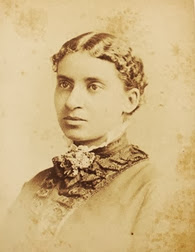From - The Southern Planter: A Monthly Periodical Devoted to Agriculture, Horticulture and the Household Arts. Volume III, Charles T. Botts, Editor, Richmond, 1843. Page 175.
"Management of Servants"
Mr. Editor - The management and conduct of servants, especially about a house, has been a source of much trouble and vexation to the housekeeper or manager; and to an observing person, the turmoil and labor of the mistress of a family, in the management of her servants seem to warrant the conclusion, that the trouble of housekeeping more than counterbalances the comforts and enjoyments procured by the labors of her domestics. Indeed, very few Virginia ladies, comparatively speaking, are brought up in a way calculated to make them what we would call good managers. Now what I want to suggest, is, the propriety of adopting the following advice.
First, let me remark, that most servants are incapable of understanding the explanation of any thing which they can not see with their eyes; therefore it is useless to tell them to do any thing which requires a long explanation, or which they are daily unaccustomed to do. It is by far the best plan, to allot to each his particular duties, and to have their affairs so arranged that one will not be dependent on the other. Let not one be employed about the same thing; for if there is more than one, they will depend on each other; and, moreover one can do more than two or three if they are employed closely together; probably some will not believe this, but let them try it.
Never change your servants from one line of business to another, for it takes them some time to get into the habit of doing things regularly. Be always as concise as possible in giving orders; for servants cannot retain many things in their heads at one time. Never scold when a servant neglects his duty, but always punish him, no matter how mildly, for mild treatment is the best; severity hardens them. Be firm in this, that no neglect go unpunished. Never let a servant say to you "I forgot it." That sentence, so often used, is no excuse at all. Finally, let regularity mark every action, and the consequence will be, that every thing will be done in its right place and at its right time; and the comforts and happiness of the family will be secured.
CECILIA
Image courtesy to the Library of Congress.































